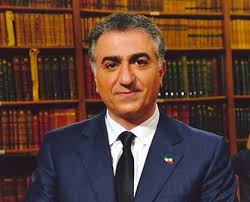By Joseph Braude
In today’s Wall Street Journal, Ray Takeyh, a senior fellow at the Council on Foreign Relations, predicts the collapse of Iranian clerical rule and warns the U.S. to prepare for the consequences: “The command-and-control structure of the Iranian nuclear program may break down. Its enriched uranium and advanced centrifuges could go missing. And Iran’s enterprising scientists may find lucrative employment in unsavory places like North Korea and Pakistan. …” Takeyh advises tough sanctions, preparations to “pick up the pieces of a collapsed regime,” a new focus on luring Iran’s nuclear scientists to defect with promises of asylum.
In Reuters, author Roya Hakakian also sees change on the horizon. Many Iranians are now hoping for a “second referendum,” she writes — akin to the one by which the population endorsed clerical rule in 1979 — to help “undo the government they chose 40 years ago.” She also notes recent slogans by demonstrators indicating they do not see a meaningful distinction between “reformists” and “hardliners” within the establishment. The U.S. should lend its voice and assistance to the protestors, she argues.
Amid these expectations of change, exiled Iranian Crown Prince Reza Pahlavi maintains his presence as a voice on the country’s future. In a video interview with Simon Constable at Forbes.com, he said Iran would be an appealing place for investment if only it were rid of clerical rule and international sanctions.
Now that the U.S. has extended its waiver on sanctions for another 120 days, the debate continues as to whether signatories to the JCPOA will use the next four months to renegotiate aspects of the deal, as the White House has demanded. Russia’s foreign ministry warns that his government will not support any tweaks. His Belgian counterpart says the same. The German foreign minister, for her part, has offered to meet with the Americans and find out “what goal and request exactly Mr. Trump’s comments contain.”
Meanwhile, a range of Iranian government activities beyond the country’s borders have drawn concern, retaliation, or both. In Germany, authorities continued to pursue alleged Iranian intelligence activities focusing on Israeli and/or Jewish targets in the country. Measures include counter-intelligence raids in Berlin, Bavaria, North Rhine-Westphalia, and Baden-Württemberg. The Economist reports that Qatar, behind schedule in preparations for hosting the 2022 World Cup in football, has explored an Iranian role in filling the gap. The nearby Iranian islands of Kish and Qeshm many be tapped to provide accommodations in light of the dearth of hotels in Doha, among other potential assists.
Iran’s government has joined Russia in denouncing a White House plan to create a force of 30,000 inside Syria to protect territory held by the Kurdish-Arab coalition that helped oust the ISIS from most of northeastern Syria. Foreign Ministry spokesman Bahram Qassemi called the move an “obvious interference in the internal affairs of this country.”










